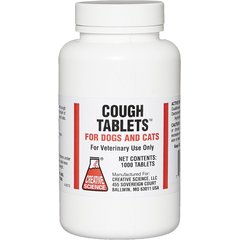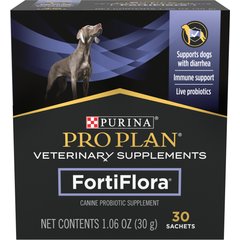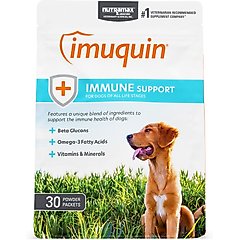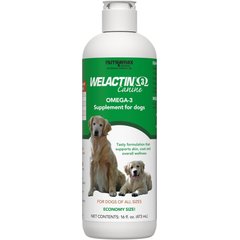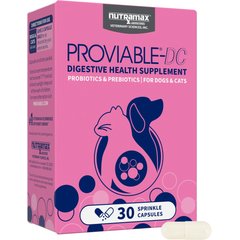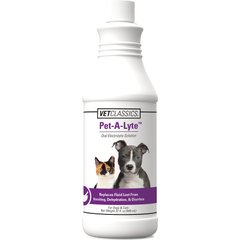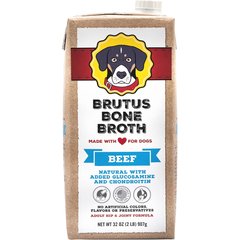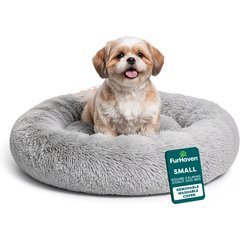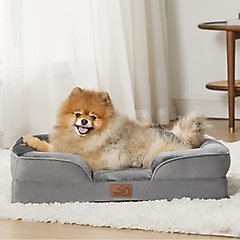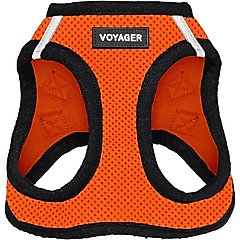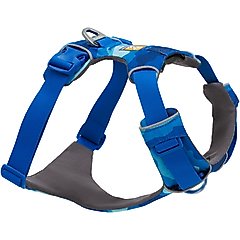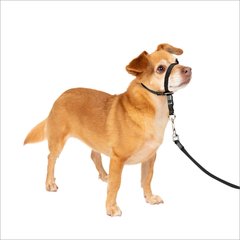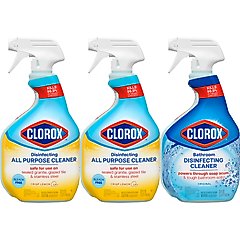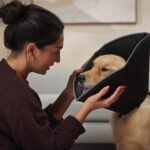What Is Kennel Cough in Dogs? What Are the Signs?
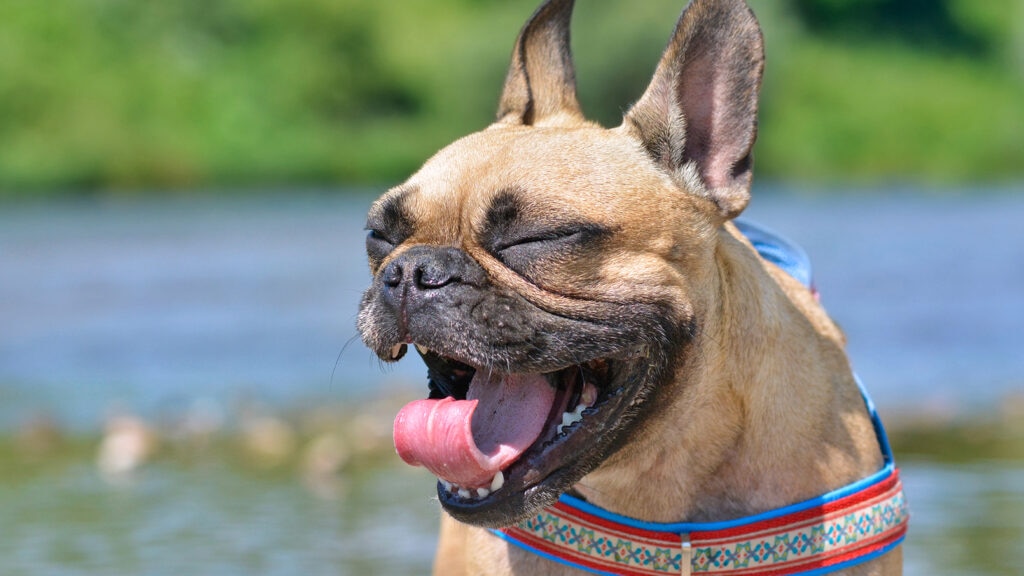
Photo by Firn/iStock/Getty Images Plus
Kennel cough in dogs is a broad term for a common, highly contagious illness that can leave your pup coughing and uncomfortable. It’s like the doggy version of the common cold, and it spreads easily between dogs.
The good news? The Bordetella vaccine provides protection against many of the common causes of kennel cough to help lower the risk, and most dogs recover pretty quickly if they do get infected.
Here’s what to know about kennel cough and dogs—what causes it, how to recognize the signs, and how to protect your canine companion.
Key Takeaways
- Kennel cough is a contagious respiratory illness in dogs that can be caused by one or more different viruses and bacteria, including Bordetella bronchiseptica.
- Dogs catch it through airborne droplets, direct contact, or contaminated surfaces, especially in social settings, such as dog parks or kennels.
- Common symptoms include a dry, hacking cough, sneezing, and lethargy. Most dogs recover within one to three weeks with rest and supportive care.
- Vaccination, hygiene, and avoiding high-risk areas are the best ways to prevent kennel cough in your dog.
What Is Kennel Cough in Dogs?
Kennel cough, also called canine infectious respiratory disease (CIRD), is a common upper respiratory infection in dogs. It affects a dog’s breathing system, particularly the throat and airways. It’s caused by a variety of infectious agents, including viruses such as canine parainfluenza and canine adenovirus type 2, and bacteria such as Bordetella bronchiseptica and Mycoplasma.
This infection is highly contagious among dogs, especially in places with high concentrations of dogs.
“Think dog parks, kennels, groomers, anywhere dogs are around each other and sharing air or toys,” says Joshua Smith, DVM, owner at Pawspital Animal Hospital in Meridian, Idaho.
Fortunately, Dr. Smith says that as far as health concerns go, kennel cough is pretty minor.
“It’s annoying more than anything, but usually not serious if the dog is otherwise healthy,” he says.
What Are the Signs of Kennel Cough in Dogs?
The symptoms can vary, but the following are the most common kennel cough symptoms in dogs:
- Dry, hacking cough (often described as a “honking” sound)
- Gagging or retching
- Runny nose with clear or yellowish discharge
- Watery eyes
- Sneezing
- Fever
- Lethargy
- Vomiting (less common)
Signs can range from mild coughing, sneezing, runny nose, and watery eyes to rapidly progressing to severe infection, such as pneumonia (lung infection).
If your dog shows any of these kennel cough symptoms, it’s important to get them checked by a vet to confirm the diagnosis.
What Causes Kennel Cough in Dogs?
Kennel cough is usually caused by a combination of Bordetella bronchiseptica, among others, plus a virus such as canine distemper or canine influenza. But how do these harmful germs make their way into your dog’s system?
Kennel cough is spread in three main ways:
- Airborne droplets: When an infected dog barks, coughs, or sneezes, bacteria and viruses can spread through the air and infect other dogs.
- Direct contact with infected dogs: If dogs sniff or lick each other, they can spread the illness.
- Contaminated surfaces: High-traffic areas, like kennels and grooming salons, can harbor bacteria and viruses on surfaces such as floors, bedding, and toys.
Kennel cough can affect all dogs regardless of age, gender, or breed. However, puppies, senior dogs, and those with pre-existing respiratory conditions or weakened immune systems are at higher risk, says Bethany Hsia, DVM, co-founder of CodaPet, an end-of-life pet service with locations across the U.S.
Additionally, flat-faced (brachycephalic) breeds with shorter muzzles, such as English Bulldogs, French Bulldogs, and Pugs, are more prone to severe symptoms due to their already compromised airways.
How Long Does Kennel Cough Last in Dogs?
“Most dogs bounce back in one to three weeks,” Dr. Smith says. “Puppies, seniors, or those with other health issues might take a bit longer.”
While kennel cough is often self-limiting and doesn’t require extensive medical treatment, it’s important to monitor your dog’s symptoms. If the cough doesn’t improve or if it worsens, visit your vet to rule out complications or secondary infections.
Depending on which organism—or combination of organisms—are involved, dogs with kennel cough are considered contagious to other dogs for up to three weeks and, in some cases, even longer.
Is Kennel Cough Contagious to Humans?
While kennel cough is highly contagious among dogs, the bacteria and viruses that cause kennel cough do not affect humans. However, Bordetella bronchiseptica has been shown to spread from dogs to people, though rarely.
There have been rare cases where people with compromised immune systems, such as those undergoing chemotherapy or those with other serious health conditions, have contracted kennel cough.
If you have concerns about contracting kennel cough, talk to your doctor.
How Do Vets Treat Kennel Cough in Dogs?
Vets diagnose kennel cough mostly by listening, Dr. Smith says.
“If your dog has that classic dry, hacking cough and has been around other dogs recently, that’s usually enough for us to make the call,” he adds.
Tests aren’t generally needed unless the dog appears very sick or isn’t improving, Dr. Smith explains. In those cases, he says a vet may check for pneumonia or try to rule out other potential issues.
Treatment for kennel cough typically includes:
- Rest: Encourage your dog to get plenty of rest to help their immune system fight off the infection.
- Hydration: Keep your dog well hydrated to soothe their throat and support recovery.
- Isolation: Keep your dog away from other pets to prevent the spread of the illness.
- Medications: Vets might recommend prescription cough suppressants to reduce discomfort, such as Creative Science Cough Tablets, or antibiotics if a bacterial infection is suspected, Dr. Smith explains.
Recommended Product
- Immune system support: Vets might recommend over-the-counter supplements to help support your dog’s immune system, such as Purina FortiFlora, Nutramax Imuquin, or Nutramax Welactin Omega-3.
Recommended Products
Dr. Smith says kennel cough can sometimes clear up on its own.
“We mostly treat to make them feel better and to help things resolve a little quicker, but mild cases don’t always need meds,” he explains.
How Can I Help My Dog Recover From Kennel Cough at Home?
While kennel cough is usually self-limiting, you can help your dog recover more comfortably with these at-home remedies.
Use Steam Therapy
Create a steam-filled bathroom by running a hot shower.
Bring your dog into the bathroom and let them inhale the steam for 10–15 minutes to help loosen mucus and soothe the throat.
If steam isn’t practical, Dr. Hsia suggests using a humidifier in the room.
Consider Probiotics
Ask your vet about adding a probiotic, such as Purina FortiFlora or Nutramax Proviable, to your dog’s diet. Probiotics can support your dog’s immune system during recovery.
Recommended Products
Encourage Water Intake
Encourage your dog to stay well hydrated by providing fresh water at all times.
You can also support hydration by offering an oral electrolyte solution, like VetClassics Pet-A-Lyte Oral Electrolyte Solution; or a warm, dog-safe broth, like Brutus Bone Broth.
Recommended Products
Promote Rest
Provide a comfortable bed, such as the FurHaven Donut Bolster Bed or the Bedsure Orthopedic Bolster Sofa Bed, where your pup can rest and recover.
Recommended Products
Keep your dog’s physical activity limited to short walks for bathroom breaks.
Use a Harness or No-Pull Headcollar Instead of a Neck Collar
Opt for a harness or headcollar (fits around the nose) during walks and outings, as it reduces pressure on your dog’s throat.
Pet parent favorites include the Best Pet Supplies Voyager Harness, the Ruffwear Front Range Reflective Front-Clip Harness, and the PetSafe Gentle Leader Padded No Pull Headcollar.
Recommended Products
How Can I Prevent Kennel Cough in My Dog?
Preventing kennel cough centers around reducing your dog’s exposure to potential sources of infection. Here are some effective ways to help keep your pup safe.
Get Your Dog Vaccinated
Vaccination is one of the best ways to protect your dog against several causes of kennel cough.
The vaccine for canine distemper virus is a core vaccine, meaning it should be given to all dogs.
Vaccines for Bordetella bronchiseptica, canine adenovirus type 2, canine parainfluenza virus are commonly included in dog vaccination protocols, especially for those dogs at higher risk who frequent dog parks, kennels, or grooming salons.
Talk to your vet about which vaccines are best for your dog and how often they should receive boosters.
Be Cautious in High-Risk Areas
While you don’t need to avoid places like dog parks, boarding facilities, and grooming salons altogether, it’s important to be mindful of the risk.
If you visit these areas, try to keep your dog away from other dogs who might be showing symptoms of kennel cough.
Keep Their Environment Clean
Maintaining a clean environment can help reduce the spread of bacteria and viruses.
Regularly disinfect your dog’s bedding, toys, and any other items they come into contact with.
Look for a pet-safe disinfectant, such as Clorox All Purpose Disinfecting Spray, that kills germs without being harmful to your dog.
Recommended Product
Practice Good Hygiene
Wash your hands after handling other dogs, especially if they’ve been in environments like dog parks or kennels. Keeping your own hygiene in check reduces the risk of transferring germs to your dog.
Limit Stress
Stress can weaken your dog’s immune system, making them more vulnerable to infections.
Try to provide your dog with a stable, low-stress environment at home and avoid abrupt changes that might cause anxiety.
FAQs About Kennel Cough in Dogs
What does kennel cough in dogs sound like?
Kennel cough typically sounds like a dry, hacking cough, often described as a “honking” noise.
How do veterinarians cure kennel cough in dogs?
Veterinarians usually treat kennel cough with supportive care, which may include cough suppressants, hydration, and rest. In some cases, antibiotics might be prescribed if a bacterial infection is suspected.
Will kennel cough go away on its own?
Yes, most cases of kennel cough will go away on their own within one to three weeks with rest and supportive care. However, if symptoms persist or worsen, call your vet.
Can a vaccinated dog still get kennel cough?
Yes. Although the vaccine significantly reduces the risk of kennel cough, it doesn’t provide 100% immunity. A vaccinated dog can still get kennel cough, but their symptoms are typically less severe and recovery is quicker.
Is kennel cough dangerous for puppies or senior dogs?
Kennel cough can be more dangerous for puppies, senior dogs, or dogs with weakened immune systems, as they might be at a higher risk for complications like pneumonia. Prompt treatment is extra important for these dogs.
Should I isolate my dog if they have kennel cough?
Yes, if your dog has kennel cough, you should isolate them from other dogs to prevent the spread of the disease. Kennel cough is highly contagious, and isolating your dog helps protect other animals from getting sick.

